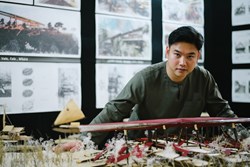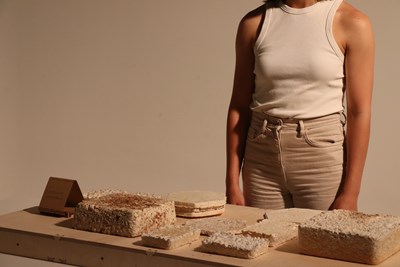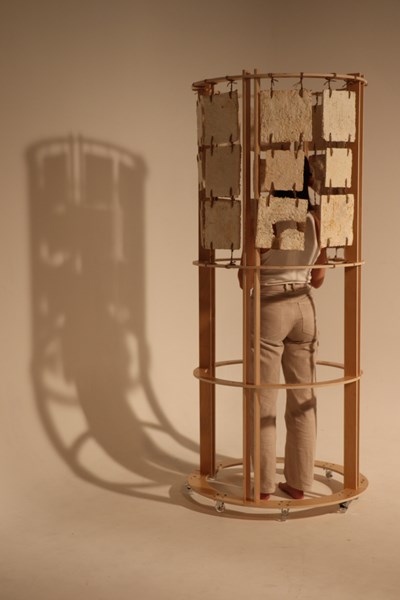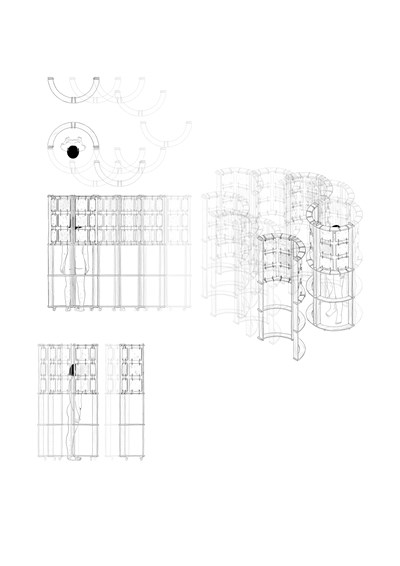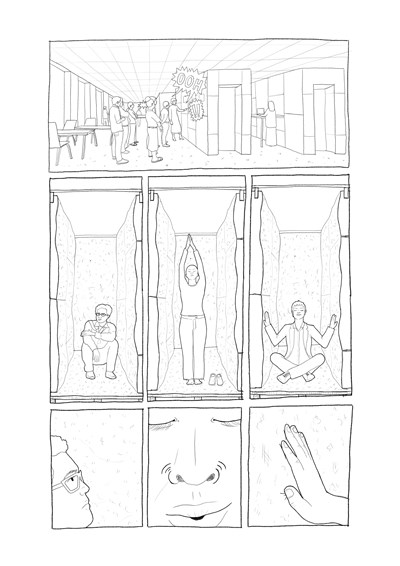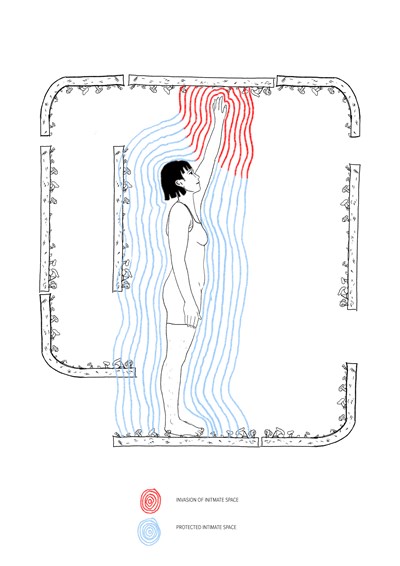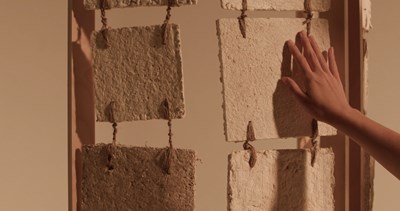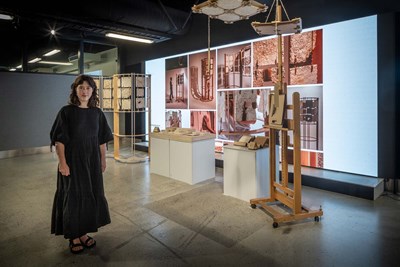Maria Walker from Te Herenga Waka Victoria University of Wellington School of Architecture is a finalist for her project 'The Mycelium Connection'.
Project description
Now more than ever, the diffusion of temporal and circular materials like mycelium biocomposites into construction markets is imperative for the cessation of the Anthropocene’s destruction and oppression of the Earth’s finite sources. To forge a new way forward, this thesis is engaging mycelium and therefore detaching itself from the industrialised desire for permanence, and the anthropocentric belief that the world is a passive resource.
Mycelium biocomposites can be made from waste (wood dust, cardboard, coffee grounds, etc), absorb CO2 while grown, and compost at the end of their lifespan, which would help shift architecture from lowering adverse planetary impacts to making a positive contribution to planetary balance. However, through the initial making and testing of mycelium biocomposites the work arrived to an important finding that the disgust towards fungi, mould, and decay might obstruct uptake of any mycelium-based solutions.
Consequently, the project focuses on exploring perception of mycelium biocomposites. It studies how the senses and proximity affect people’s experience, disgust, and curiosity when facing the mycelium biocomposites in a 1:1 installation and materials exhibition which was designed and grown, in collaboration with the start-up company Mushroom Material.
The experiments capture multi- sensory responses to mycelium biocomposites alongside more familiar industry materials in a variety of architectural contexts. The respondents appeared less interested in mycelium’s reduction of waste streams, and more interested in the intimate sensory exchanges between mycelium and participants which evoked joy, disgust, calm, intrigue, and fear, as well as wondering if they were “touching, or being touched”.
This body of work concludes by highlighting that mycelium biocomposites have potential to enhance human emotional wellbeing, in addition to positively contributing to the planetary wellbeing. It imagines a future of co-habitation with mycelium where we don’t just welcome it into our building fabrics, but welcome it into our lives.
Jury citation
Is this an individual project or a group one? This ‘collaboration’ with families of funghi has resulted in an exciting material innovation, and a useful body of research that provides real-world insights into how people feel about biocomposites.
Construction industry waste is an enormous problem worldwide, and here in New Zealand is estimated to comprise at least 20% of our landfill refuse. This project is a critique of the very concept of waste, which Maria argues is born out of a lack of respect for materials. As a material that is itself living, mycelium biocomposite offers an alternative to the way architects passively specify and consume materials, and Maria advocates for the adoption of a collaborative mindset with material, site and landscape. She urges us to embrace materials that decompose and are recycled, rather than wanting or expecting permanence.
Through a rigorous making and testing process, Maria has set out to demonstrate the more alluring qualities of mycelium, such as its tactility, calming effect and earthy aroma, as well as the health and wellbeing benefits of seeing, smelling and touching materials that are part of a larger life cycle. The potential for this material to foster social sustainability and contribute to a more circular building industry is exciting, and Maria’s passionate presentation and talent for communication make her a compelling ambassador for her funghi friends.



